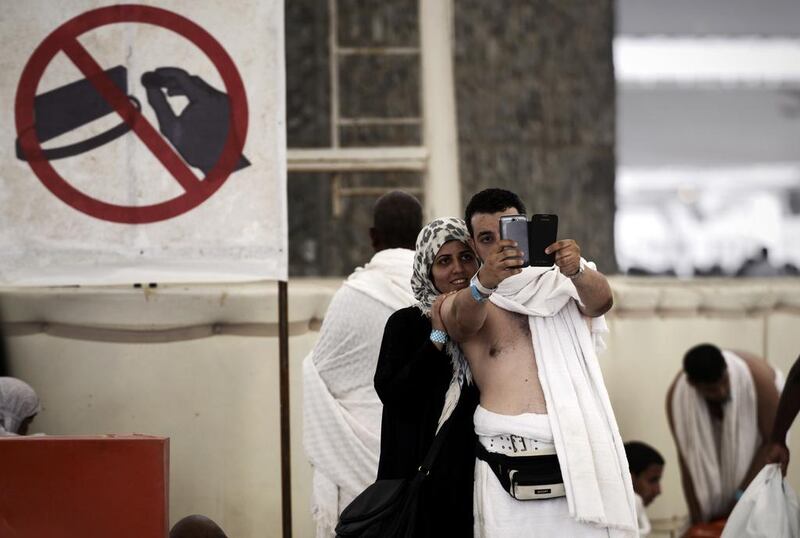"Taking selfies in front of holy sites like the Kaaba is forbidden.”
The name of the religious cleric who made this ruling is not mentioned, but it goes on to explain that selfies like these are part of “riya” – showing off or pretending virtuousness, where one does something to show other people rather than purely for the sake of Allah. Accompanied with graphics of stick figures taking selfies in front of the Kaaba in Mecca, the image is making its rounds on social media.
I have seen this ruling before, and some religious clerics I’ve talked to agree that such behaviour should be discouraged because the whole point of doing any form of pilgrimage or religious homage is to focus on the deed, not on promoting oneself by doing so.
At the same time, given the amount of information shared on social media these days, it is always hard to verify anything. Often, the information gets tweaked along the way, and the original message is lost.
The latest fatwa (religious edict) to make headlines was one supposedly “reissued” by Saudi Arabia’s top clerics against playing Pokemon, this time through the wildly popular smartphone application Pokemon Go.
First issued in 2001 when Pokemon was played with cards, the decree says the game violates Islamic prohibitions against gambling, uses devious Masonic-like symbols and promotes “forbidden images”. The edict notes that a six-pointed star in the game, for example, is associated with the state of Israel. It also includes a strange overanalysis of the names of the creatures and their designs.
While many media reported this, it seems no one actually checked with the Saudi ministry of culture and information. Its spokesperson denied such a fatwa was reissued and slammed the media for not verifying news taken from social media.
One thing to remember is that, while fatwas are not binding, they often highlight important or current issues of interest that have been brought to the attention of the religious authorities.
While many fatwas are important reminders of our duties, some have caused uproar or have been ridiculed. These include a fatwa released in 2008 by a Saudi cleric that Mickey Mouse was “one of Satan’s soldiers”. This year, a Saudi cleric forbade playing chess because it “encourages gambling and is a waste of time and finances”.
Given the current obsession with taking photographs and videos of yourself and posting them on social media, it is no wonder that there have been religious edicts against this practice.
In May, Saudi cleric Sheikh Saleh Bin Fawzan Al Fawzan was asked about the trend of taking photos with cats. At first, he was taken aback by this, saying: “What? What do you mean pictures with cats?” Later, he issued this ruling: “Taking pictures is prohibited if not for a necessity – not with cats, not with dogs, not with wolves, not with anything.”
Last year, Felix Siauw, an Indonesian cleric with more than 1.7 million Twitter followers, declared on the social-media site that women who take selfies are “shameless” and “unpure”.
What is interesting is that the public tends to ignore the many fatwas that really inspire us to perform better deeds, such as being kind to animals. I recall two rulings released in 2011 by the UAE’s General Authority of Islamic Affairs and Endowments.
One said: “If you happen to come across roadkill, or an animal or bird that died of natural causes, then take a moment to bury it.” Another reminded believers of the “great sin” of killing animals on the road. The fatwa placed responsibility on drivers and warned them to be mindful of wildlife.
There are also fatwas against reckless drivers, such as the one in 2014 by Sheikh Abdulaziz Al Shaikh, Saudi Arabia’s grand mufti, who said that drivers who sped and raced through red lights were committing a “major sin”.
So while it is easy to poke fun and pick and choose among the rulings, it is important to remember to check one’s sources and to reflect on those rulings that carry important messages.
rghazal@thenational.ae
On Twitter: @arabianmau





